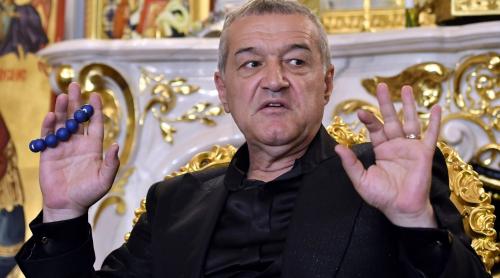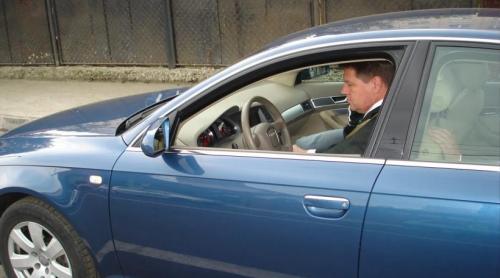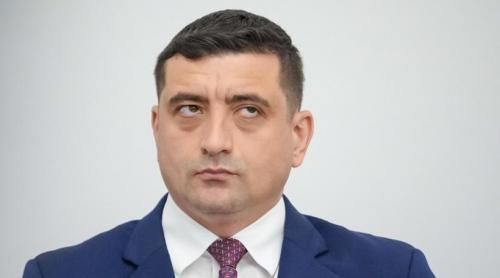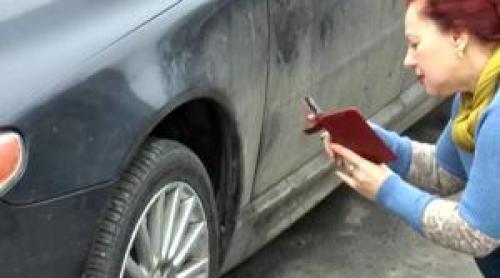
"For sale: full apartment furniture, in good condition, hall-way furniture, piano, Russian samovar, silver candle holders, Akai stereo, Sanda sawing machine, Albalux washing machine, electric heater, mink coat size 48, lamb hat, books, various items."
This type of ads filled the classifieds of Scînteia or România libera dailies, during the communist regime, and they advertised more than giving for sale an entire household, as all people reading them understood the sellers were leaving Romania for good.This was one way of leaving Romania at the time, the legit way, when a relative abroad asked for first degree relatives - meaning offspring and parents - to join him or her, abroad.
It was not the easiest way to get out of the country in the '70s or '80s, because of the bureaucratic hurdles one had to overcome, but at the end of the day it was the safest.
At the same time, while having a relative abroad might have been the ticket out of Romania, it was for sure the reason for communist authorities to keep an watchful eye over all those still in the country, and resort even to subtle punishment, in the form of giving them a hard time with promotion on their jobs or traveling abroad.
It seems that people from all lines of work had a close relative living abroad, including those in the Communist Party leadership, national assembly or ministries. Even one of dictator Nicolae Ceausescu's adviser brother and sister-in-law living in West Germany since 1972.
Why such people with less than spotless files, in terms of Communist Party criteria, were still held in leadership positions one might only guess: it might have been for the weakened position all these people found themselves in, hence for being able to control them.
But the way out of Romania was never simple and safe, during communist years. More often than not, people tried their way over the Danube River, which was a test of endurance in more than one way.
Others chose to conceal their intentions, do their best to get the official approvals for a trip to a Western country, and act as legitimate tourism lovers until they reached the final destination and simply opt out of the group, never to return to Romania.
This is why going on trips even to communist countries was thoroughly supervised, with the organization of co-workers giving their seal of approval for a trip as benign as one to the Golden Sands, on Bulgaria's sea-shore.
"We state that the afore-mentioned did not work in the past and is not working in present with classified documents; he/she does not own money to the company and offers all the moral guarantees," - these were the standard phrases one could read on such documents issued from the workplace of a person asking permission to visit a fellow communist country.
Government Decree 156/1970, later passed into law as Law35/1970, and decrees 310/1971 and 636/1973 set forth a convoluted procedure, which made getting a passport very difficult, with the authorities having the right to refuse issuing one, with no explanations given to the applicant.
According to these pieces of legislation, the applications for a passport and visa for travel abroad were filed with the local offices of the Ministry of Interior, the National Authority for Tourism, or the Tourism Office of the Communist Youth. At the same time, the authorities were to approve the applications for travel abroad according to hard currency exchanges allowed under the state budget.
At the same time, the employees had to append to their file the written approval of the manager in the company they worked with.
By all accounts, Romanian citizens were not allowed to keep in their possession their own passports, as Art 20 in Decree 156/1970 states they were to return it to authorities within 48 hours from returning to Romania.
The Ministry of Interior deposited the passports, except the diplomatic ones, which were kept with the Ministry of Foreign Affairs.
Further infringement on the civil rights of Romanians took place in the '80s, with Decree 408/1985 making it mandatory for them to write down and report the authorities on any conversation they had with foreign citizens, be they personal or professional.
The freedom of movement was re-established with Decree-Law 10, of January 1990, in the aftermath of the upheaval toppling the communist regime, in December 1989.

















